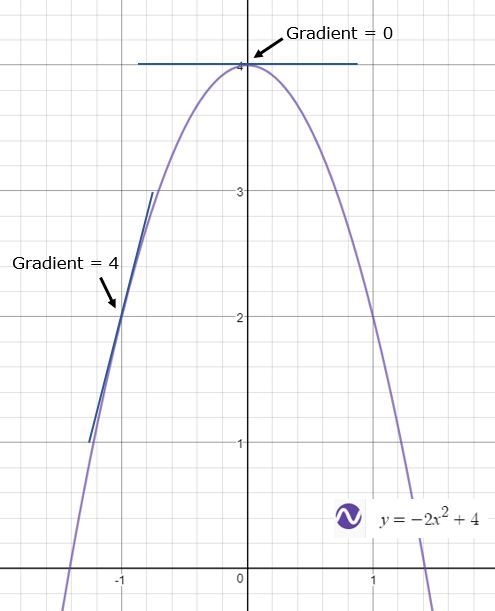Calculus
Calculus helps us to understand the gradient of a curve.
Gradient function
The derivative gives us a ‘gradient function’ i.e. a formula that will give the gradient at a point on the curve.
The gradient on a curve is different at different points on a curve.
On this graph:
When the gradient is positive.
When the gradient is equal to zero.
When the gradient is negative.

Differentiation
To find the gradient function (derivative) for a model or graph we differentiate the function. The technique of differentiation can be carried out using algebraic manipulation.
Find out more about algebraic manipulation such as rearranging equations and the law of indices.
In general : For the function then
Khan academy step though this power rule with a number of examples.
e.g.
then
The following video will take you through three more examples of differentiation of a polynomial.
Practice this technique on Khan Academy. Hints and further videos are available.
Notation
There are three commonly used notation methods for the derivative of a function.
| If |
|
| If |
|
| If we differentiate |

